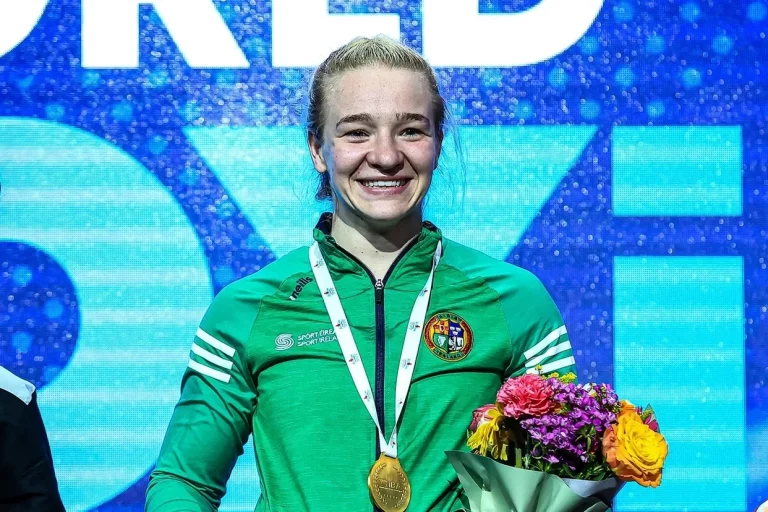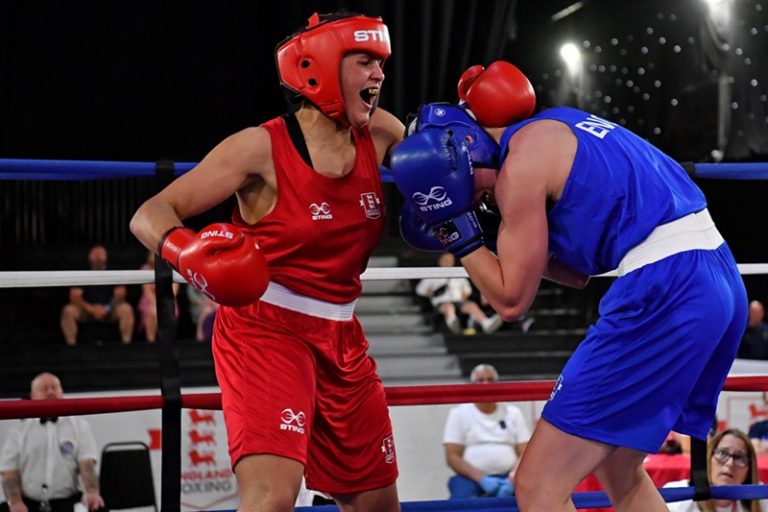Amidst the deep crisis engulfing amateur boxing—tainted by corruption scandals and political tensions, a new organisation has emerged: World Boxing. Its mission is clear: to replace the discredited International Boxing Association (IBA), whose ties to Russia have led to its downfall, and to ensure boxing remains part of the Olympic Games. In a move to boost its credibility, World Boxing has appointed a true legend of the sport, Gennady Golovkin, as its president. But will the reputation of a great champion be enough to steer amateur boxing back on track and secure a prosperous future?

The IBA’s Freefall
Once the governing body of amateur boxing, the IBA lost its recognition from the International Olympic Committee (IOC) after years of scandal, leaving the sport’s presence at Los Angeles 2028 in serious doubt. Accused of corruption and Russian influence, particularly in its presidential elections, the IBA saw its control over Olympic boxing first questioned, then completely revoked.
Founded in 2023 by the German, British, Dutch, Philippine, Swedish, and American federations, World Boxing aims to restore trust among athletes and international bodies. By promoting values of fairness and integrity, the organisation hopes to turn the page on a troubled era marked by controversy and distrust.
A Global Challenge
To lead this revival, World Boxing has turned to Gennady Golovkin, a global icon of the sport, known for his remarkable career and professionalism. His appointment sends a strong message: the new organisation is committed to relying on a respected figure who embodies discipline and integrity. However, even with a superstar at the helm, World Boxing must prove its ability to manage major international competitions and replace the IBA as the organiser of elite amateur tournaments. The challenge is enormous, as a great boxer’s reputation alone does not guarantee the successful governance of an international sports organisation.
The success of World Boxing will also depend on its ability to convince national boxing federations to break away from the IBA. Many federations, particularly in Asia and Africa, remain tied to the old governing body despite its scandals and may be hesitant to make the switch. Currently, 44 national federations have joined World Boxing, and a 45th, Kazakhstan, with Golovkin’s backing, is expected to follow soon.
However, the situation in Asia could shift significantly. The Asian Boxing Confederation recently voted 21–14 in favour of remaining with the IBA, but a second vote will take place on 23 November in Thailand, which could produce a very different outcome. If the confederation decides to leave the IBA, World Boxing would take a crucial step toward securing boxing’s Olympic future, especially with time running out.
IOC President Thomas Bach recently stated that the decision on whether to keep boxing in the LA 2028 programme will be made in early 2025. The final ruling could even be put to a vote at the IOC’s 143rd session, scheduled for 18–21 March in Greece.
An Uncertain Future
While World Boxing presents itself as a serious alternative, it still faces a race against time to convince the entire amateur boxing community. Gennady Golovkin’s presence at the top gives the organisation instant credibility, but his name alone won’t be enough to persuade the IOC and national federations to entrust amateur boxing’s future to this new structure.
Recently, World Boxing announced that it will host the 2025 Amateur Boxing World Championships at the M&S Bank Arena in Liverpool. This move is significant, as the most recent world championships were boycotted by several major Western federations in protest against the Russian Boxing Federation’s participation.
With Los Angeles 2028 fast approaching, World Boxing has a unique opportunity to reform a sport in crisis. If it can overcome the numerous challenges ahead, the organisation could successfully replace the IBA and usher in a new era for amateur boxing, one built on transparency, fairness, and respect for sporting values.



